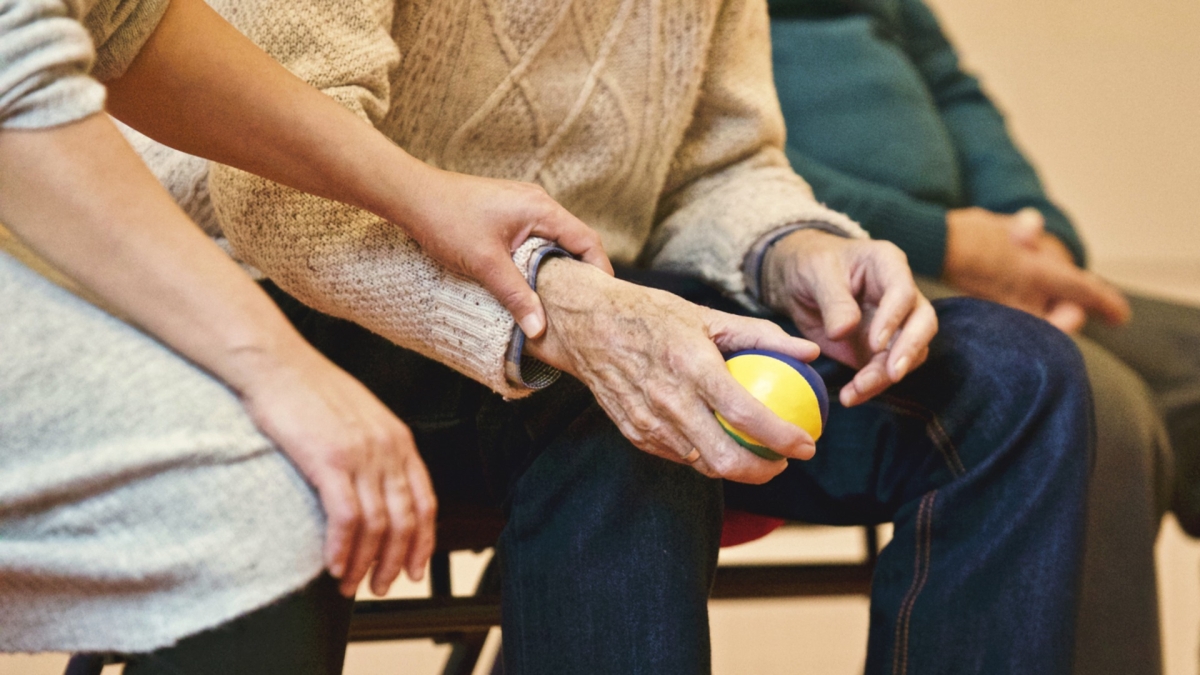The challenge of Alzheimer’s disease is hard for the patient, painful for the family and, in many ways, still baffling for researchers.
“There is no way to predict the manifestations or the rate of progression of the disease,” said Mary-Charlotte Domandi, host of the ASU Now podcast "Thought Huddle."
In the latest episode, “Alzheimer’s Disease: Holding on to Humanity,” she recounts her own experience with her stepfather who had Alzheimer’s, remembering an unexpected turn in their often contentious relationship when he shared fond feelings.
“Moments of lucidity and awareness are completely unpredictable gifts,” she said. “I know that because I was given a rare and beautiful gift.”
This episode explores how the disease affects millions of people, including more than 5.7 million Americans and nearly 50 million worldwide; the state of research for the prevention and treatment of the illness; and how people’s quality of life can be maintained or even improved.
Among the guests is Morgen Hartford, regional director for the Alzheimer’s Association in southern Arizona, who explains that “as the disease progresses, it will cause different parts of the brain to shut down, including the brain stem.” His assessment is blunt: “Alzheimer’s is a terrible disease, unfortunately.”
Dealing with the disease changes lives, including those of the approximately 16 million Americans caring for afflicted loved ones, according to Hartford. Among them: "Thought Huddle" guest Diego Mastroeni, with the ASU-Banner Neurodegenerative Disease Research Center and ASU’s Biodesign Institute.
“The field kind of chose me … my grandfather had dementia,” said Mastroeni, who is also an assistant research professor in the School of Life Sciences. That diagnosis eventually led him to a research career primarily focused on preventive care. “Alzheimer’s disease really starts in our 20s and 30s. That’s one of the reasons why it’s difficult for us as researchers: How do we treat a disease that started 40 or 50 years ago?”
Mastroeni discusses the notion of “synoptic connectivity” and how the loss of “synaptic plasticity” as we age causes us to lose memory. This can be combatted, he says. “As we age, we become complacent,” he explained, curtailing new activities we’ve never done before and causing our brains not to make new connections.
Take up painting or drawing, learn a new language or pursue some other activity that stimulates the brain. “It’s not about doing something over and over again,” he said. “It’s about doing something different over and over again. That creates more synapses.”
The episode ends with Gary Glazner, founder of the Alzheimer’s Poetry Project, which has chapters across the U.S. He has shown how poetry and singing can have a powerful impact in connecting with Alzheimer’s sufferers and accessing their memories. He tells the story of family members arriving to see their loved one belting out Frank Sinatra’s “Fly Me to the Moon.”
It brought them to tears, Glazner recalls. Such experiences not only can uplift and enliven those afflicted with the disease, it can increase the sense for caregivers that patients who seem completely cut off are “more fully human.”
Find more episodes at thoughthuddle.com.
Top photo courtesy Pixabay
More Science and technology

Science meets play: ASU researcher makes developmental science hands-on for families
On a Friday morning at the Edna Vihel Arts Center in Tempe, toddlers dip paint brushes into bright colors, decorating paper fish. Nearby, children chase bubbles and move to music, while…

ASU water polo player defends the goal — and our data
Marie Rudasics is the last line of defense.Six players advance across the pool with a single objective in mind: making sure that yellow hydrogrip ball finds its way into the net. Rudasics, goalkeeper…

Diagnosing data corruption
You are in your doctor’s office for your annual physical and you notice the change. This year, your doctor no longer has your health history in five-inch stack of paperwork fastened together with…


